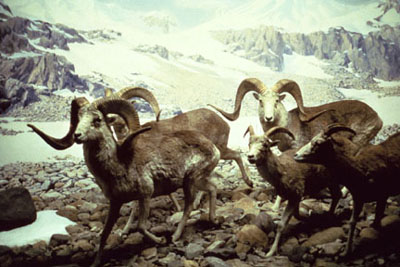

 The Accurate Reloading Forums
The Accurate Reloading Forums  THE ACCURATE RELOADING.COM FORUMS
THE ACCURATE RELOADING.COM FORUMS  Hunting
Hunting  Asian Hunting Forum
Asian Hunting Forum  India:Wildlife conservation undermines rights of indigenous people/local communities
India:Wildlife conservation undermines rights of indigenous people/local communitiesGo  | New  | Find  | Notify  | Tools  | Reply  |  |
| one of us |
https://phys.org/news/2020-10-...digenous-people.html Wildlife conservation undermines the rights of indigenous people and local communities in India by Autonomous University of Barcelona An interactive map developed by the Environmental Justice Atlas team at the Institute of Environmental Science and Technology of the Universitat Autònoma de Barcelona (ICTA-UAB) reveals that certain forms of wildlife conservation undermine the rights of indigenous people and local communities living within protected areas across India. The interactive map, led by ICTA-UAB researcher Eleonora Fanari and carried out in collaboration with India's environmental organization Kalpavriksh, has been launched during the India's National Wildlife Week. The map is a product of three years of extensive research covering 26 protected areas, carried out in association with numerous organizations, activists and independent scholars, struggling against violations across the ground and in the courts. A strict protect-and-conserve model, favored by a powerful Indian conservation lobby, has increased the network of protected areas from 67 in 1988 to 870 in 2020. However, these lands are not uninhabited, and approximately 4.3 million people are currently living in and around India's protected areas, which now encompasses around 5% of the national territory. India's conservation model fails to recognize the fundamental and customary rights of local and indigenous communities who have inhabited these areas for centuries. The model is often in violation of laws that aid conservation such as the Forest Rights Act (2006), which recognizes the need for a more inclusive form of forest governance including the co-management of protected areas. Ambiguity within conservation policies creates serious challenges. The introduction of categories such as tiger reserves in the Wildlife Protection Act (2006), non-legal policy categories like wildlife corridors and biodiversity reserves, including terms such as "inviolate spaces" or "critical tiger habitat," affect local communities inhabiting these regions. These policies create confusion for the inhabitants and complicate their implementation on the ground. A general analysis of the data in the map shows that from 1999 to 2020, approximately 13,450 families have been displaced due to conservation projects from the protected areas featured in this map. Moreover, criminalization of community activities and policies that seek to militarize conservation have led to large-scale violence in these territories, sometimes leading to murders of community members. "It is important to highlight these struggles which have been long ignored, to show how the current conservation structure and the rhetoric of greening are failing in acknowledging justice and recognition of rights as the primary elements to achieve biodiversity protection," says Eleonora Fanari, member of the EJAtlas team. "By actively alienating local people, this model of conservation has also ignored the real reasons for wildlife population decline. These include intensive hunting of tigers and other large animals by British and local rulers in the past, and the continuous decline in wildlife habitat due to continuous large-scale diversion of biodiversity-rich areas for mega infrastructural and 'developmental' projects like roadways and railways, dams, mining, etc.," says Neema Pathak Broome of Kalpavriksh. Wildlife Week is celebrated every year in India from 2 to 8 October. The campaign promotes the conservation and protection of animal life in the country. Events are organized to teach people about animal life and to encourage them to protect biodiversity. While the prevention of biodiversity loss should be at the top of the fight against climate change, it is just as important to inform about the impact such policies can have on the ground. This featured map is an attempt to bring light to the violations and the failure of India's current conservation model. This model does not recognize the rights of communities and indigenous people and instead endangers human lives and the nature it is intended to protect. Kathi kathi@wildtravel.net 708-425-3552 "The world is a book, and those who do not travel read only one page." | ||
|
| One of Us |
When you have a population of over a billion, tough to see how wildlife conservation can come into play. Have to feed all those mouths, one way or another. Grizz When the horse has been eliminated, human life may be extended an average of five or more years. James R. Doolitle I think they've been misunderstood. Timothy Tredwell | |||
|
| Powered by Social Strata |
| Please Wait. Your request is being processed... |
|
 The Accurate Reloading Forums
The Accurate Reloading Forums  THE ACCURATE RELOADING.COM FORUMS
THE ACCURATE RELOADING.COM FORUMS  Hunting
Hunting  Asian Hunting Forum
Asian Hunting Forum  India:Wildlife conservation undermines rights of indigenous people/local communities
India:Wildlife conservation undermines rights of indigenous people/local communities

Visit our on-line store for AR Memorabilia

